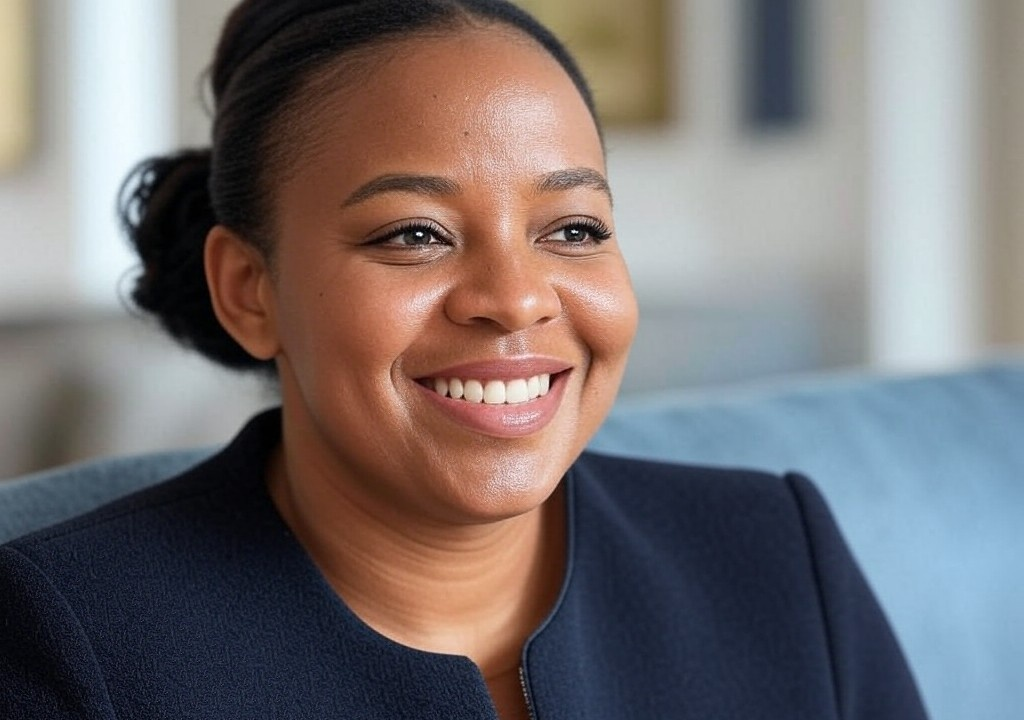There’s a running joke in my family that I was born talking. Not crying—just chatting away, asking the nurse where I could find a good book and whether the lighting in this delivery room was always so harsh. My parents used to laugh about it during holiday dinners, but truth be told, as a kid, my quick wit and penchant for words often made me feel like a stranger in my own skin. I was the bookish, dreamy one in a household full of doers—my dad saving lives and my mom winning cases while I wrote bad poetry in spiral notebooks and daydreamed about the characters in Toni Morrison novels.
But it wasn’t all whimsical musings and literary daydreams. Like many of us, I faced that sneaky little villain called Impostor Syndrome, whispering things like, “You don’t belong here,” or, “Yes, but does storytelling really matter?” It wasn’t until a stranger—well, a stranger-turned-unlikely-mentor—stepped into my life and saw the thing inside me I couldn’t quite see for myself, that my trajectory shifted. And believe me when I say, nothing about it began like a feel-good Hallmark movie.
"You're Not Quiet, You're Listening."
Flashback to my sophomore year at Howard University: I’d just transferred from a sprawling, mostly white private school campus back in Dallas to the buzzing epicenter of Black excellence. My parents, bless their ambitious hearts, had sent me off with marching orders to make my professors proud while also keeping my GPA solid enough to justify my MARC Jacobs backpack as a "back-to-school investment." No pressure, right?
It happened in Journalism 201, the class everyone dreaded because, rumor had it, Dr. Anita Hayes could slice your self-esteem in half with just her eyebrows. She was brilliant—a Pulitzer Prize winner who’d apparently lost patience with mediocrity somewhere in the disco era. While other students clung to their desks like passengers on a sinking ship, I sat quietly with my notebook, hyperaware every time Dr. Hayes scanned the class and flashed one of her signature looks.
I was the kid in the class who didn’t talk. Or, as my freshman-year RA liked to remind me, I came off as “quiet, but definitely quietly judging people.” And maybe that had been true before Howard. But here, at this moment, I was quiet because I was studying—not the material, but people like Dr. Hayes. She existed at the intersection of brilliance and unapologetic confidence in a way that simultaneously terrified and inspired me.
One sweltering Thursday just before spring break, she handed back our midterm pieces, her crimson-ink critiques bleeding across almost everyone’s essays. I was preparing myself for the written equivalent of a firing squad when she placed mine on the desk in front of me and said, “Hm. There’s something here.”
I blinked, half-sure she was mistaking me for someone else. “Excuse me?”
“There’s something here,” she repeated. “Your writing—your voice—they’re deliberate. Take up space with them.”
It wasn’t so much the words that knocked me sideways, but the sheer fact that she’d noticed me at all. One casual sentence rewrote my narrative: I wasn’t quiet; I was listening. I wasn’t afraid; I was deliberate.
Mentors Aren’t Magic Wands, But They Spark the Spell
Here’s the thing about having someone see your potential: it doesn’t come with a flashing neon sign or instant fireworks. Dr. Hayes didn’t wave a magic wand and turn me into the polished writer I am today. Instead, she offered me a spark—a quiet insistence that maybe storytelling did matter, that I could belong in rooms where words were currency.
From there, I began leaning all the way into the very thing I’d once made myself smaller to hide. I applied for an internship with a D.C. magazine (something I’d previously decided I wasn’t “good enough” for) and got it. I submitted an op-ed for publication and cried the night it got rejected—but then I reworked it, sent it somewhere else, and scored my first byline. And somewhere in the chaos of writing, reading, and failing forward, I began to shift—a small but seismic redefinition of how I saw myself.
Dr. Hayes didn’t offer praise lightly, so when she circled one of my first essay drafts with a note saying, “You’ve got something here. Don’t lose it,” it felt monumental. Not because I needed external validation, but because, for the first time, I started to believe the quiet something she’d seen in me might actually be real.
Why It Matters to Have Someone Really See You
Relationships—be they romantic, platonic, or professional—are largely built on an exchange of sight: I see you, the real you, and in doing so, I affirm your capacity to grow. It’s a deeply human need, and honestly, not all that different from dating. Think about how good it feels when your partner picks up on a side of you you didn’t even know they noticed—the way your face lights up when you talk about your niche obsession with vintage cookbooks or your uncanny ability to remember everyone’s favorite karaoke song.
What Dr. Hayes gifted me was exactly that: her way of saying, “I see past your fear and self-doubt—past what you think you’re not—and into what you could be.” And let me tell you, once someone truly sees you, it’s hard to un-see yourself that way.
The Takeaway: Be That Person for Someone Else
Not all of us get our Dr. Hayes moment wrapped up in a bow. But whether it’s a professor, a friend, or even a stranger who turns a passing compliment into a golden epiphany, the fact remains: being seen is transformative. And here’s the kicker: you can’t always wait for someone else to hand you that gift. You can offer it to someone else, too.
- See your friends. Remind them of the ways they’re talented, beautiful, and capable, even when they can’t see it themselves.
- See your partner. Acknowledge the little things they think go unnoticed and watch how it deepens your bond.
- See a stranger. Compliment the brilliance in their work, even if it’s something as simple as how they decorated their café or styled their outfit. You never know who needs that nudge to believe in themselves.
Final Thoughts: Becoming the Mirror
Looking back now, Dr. Hayes didn’t just change my trajectory—she taught me how to be that mirror for someone else. Every time I recognize potential in another person, cheer someone on, or—even in my writing—lift others up through shared wisdom, I’m honoring what she gave me. And if there’s one thing I know for certain about life and love, it’s that showing up for each other like that isn’t just a nice gesture. It’s the point.
So here’s my challenge to you, dear reader: be the person who sees what’s good in someone else. And when it happens for you—and it will—don’t just thank them. Pay it forward.




















